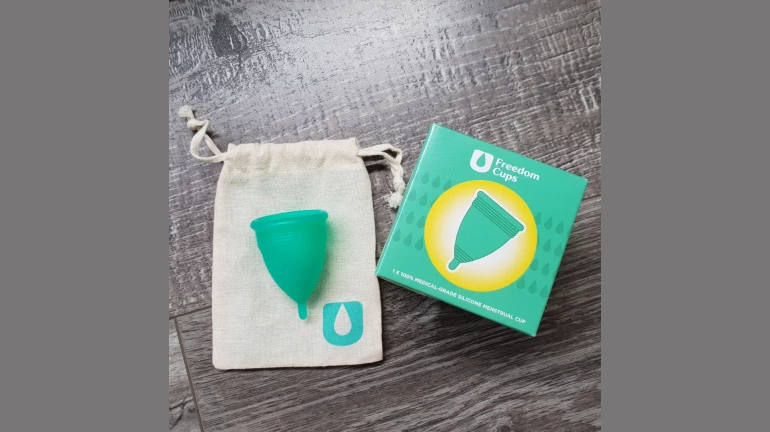
It is 2019 and sanitary napkin ads still use blue liquid to show blood. They also show incredibly happy women on their periods – a misnomer at so many levels. In India, there is little understanding of menstruation and menstrual care products, and people today are doing these best so spread awareness about this matter. Although sanitary napkins are used among the urban and upper-class population, their disposal still remains a huge concern for their environment.
Truth should replace stigma, simplicity should replace wastefulness, and honesty should replace business motives. That is the world these two women entrepreneurs- Rachana Dalmia and Mili Shah wanted to create. Here's what we understood about their attempt to make others aware of this stigmatic concern.
That ‘Time of the month’
Mili and Rachana are both design graduates from Sir J J Institute of Applied Art and are currently working as Digital Marketing and Interior Designing professionals respectively. Their visit to rural areas enabled them to observe first-hand problems around menstrual health and hygiene and discovered many myths surrounding it - like period blood being labelled ‘dirty’ and girls not bathing during ‘that time of the month’. This was a major reason for dropouts at school and a life filled with taboos. Also, society looked at a menstruating girl as one of marriageable age, and hence, early pregnancies happened too often.
Like most urban women in India, both Mili and Rachana used sanitary napkins. But when they began using menstrual cups, their mindsets changed. A chance WhatsApp conversation led to Rachana and Mili realising that they were the only two people using cups in a group of 15 friends from college. The two figured there was an urgent need to get the perfect cup for all menstruating women.
Rachana explains, “Sanitary pads contain synthetic fabrics, fragrances and chemical coatings, which can cause allergies and even cancer. Add to this, the environment is getting polluted with garbage accumulating over the years.”
It is estimated that 12,000 tampons and pads are disposed of by a menstruating woman in her lifetime. But brands like Carmesi, Purganics, and Saathi offer environmental-friendly sanitary napkins. The duo researched about it and got the product which is imported from the USA to the Indian market.
“Unlike pads, which needs to be changed frequently, Mihana FreedomCups can last for 10-12 hours in a day. (And one can last for 10 years.) Mihana FreedomCup’s menstrual cups come in two different sizes now which could be used on that basis of flow and convenience. Our mission is to get reusable menstrual cups to women and we work on a buy-1; give-1 scheme where every cup purchased allows us to give a cup to a woman in an underprivileged community.” says Mili
Breaking the Barrier
According to the World Health Organisation (WHO), there were 355 million menstruating women in India in 2018. A National Family Health Survey (NFHS) survey last year found that 62 per cent of women in the 15-24 age group use cloth for menstrual protection. Poor hygiene during periods often causes reproductive tract infections, depression, fear, and frustration, causing low participation in the workforce.
Mili further explains, “We felt the cup should be easy for new customers to use. Hence, we tried to address the inhibition of insertion and fear of removal through a use-based perspective. In every workshop, we shared our personal experiences and the advantages of menstrual cups.”
Comfort for the “virgin”
Compared to sanitary pads and cloth pads, Rachna claims that FreedomCups doesn’t cause discomfort as it is inserted inside the body and cannot be felt. However, she says that many girls fear that their hymen will be damaged and they will lose virginity with its insertion.
“We have to explain the concept of virginity to them, and that it is disconnected to breaking of hymen. Only having sexual intercourse would mean you are not a virgin. We show anatomy structure, which shows where the hymen lies,” Rachana says. The hymen can also break during playing various sports. However, while using the cup, it might stretch, tear, or remain unaffected. There are also some women who are born without it.
During awareness workshops, Rachna often gets asked if the use of the cup will increase the vagina size. A lot of girls tell them that their mothers won’t ever allow them. They are not always able to convince them, but slowly and surely, there are a few gutsy women who are able to break through their conditioning.
At present, Freedom Cups only sells online – via its own website Mihana and Amazon. It is designed and manufactured in the USA keeping high-quality, safety and 100% compatibility with all body types and lifestyles in mind. The medical-grade silicone used in Freedom cups is FDA approved, hypoallergenic, toxin-free, durable, and isn’t harmful to human tissue!
Menstrual cups have been available in India for in 8-10 years now, although it is yet to catch up widely. International brands like Eva, iCare, and Wow, along with Indian startups like Hygiene and You, Sikycup, Boondh cup, and Stonesoup, are making it more mainstream now. Considering the size of the potential customer base, there is space for multiple players, and Freedom Cup joins the club with great confidence.
Having said this, there is a strong sense of a new revolution for women’s health, on the way.





